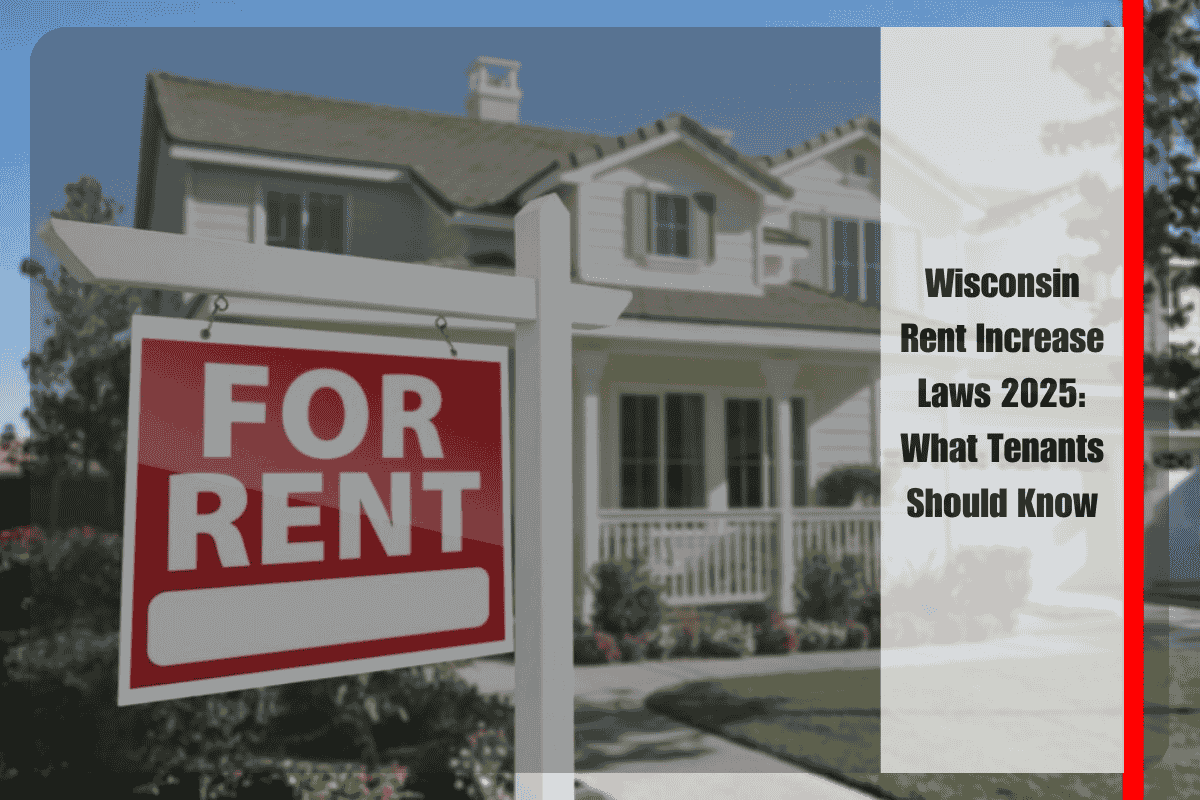In 2025, Wisconsin tenants need to be aware of how rent increases are regulated in the state. Wisconsin does not have statewide rent control laws, which means landlords have significant flexibility in determining rent amounts. However, there are rules and guidelines that both landlords and tenants must follow when it comes to rent increases. Understanding these laws is crucial for tenants to ensure their rights are protected and to avoid surprises when it comes to rent hikes.
Statewide Rent Control and Regulations
Unlike some states, Wisconsin does not impose rent control, meaning landlords are allowed to increase rent as they see fit, but there are limitations and guidelines that must be followed. The law generally allows for rent increases between leases or after the expiration of a lease term, as long as proper notice is provided to the tenant. However, landlords must follow certain procedures to avoid legal issues or disputes.
Notice Requirements
In Wisconsin, landlords are required to give tenants proper notice before increasing rent. The notice period depends on the type of tenancy. For tenants with a written lease, the landlord must provide at least 30 days’ notice before increasing rent, unless the lease specifies a longer notice period. If the tenant has a month-to-month rental agreement, the notice period is also 30 days. Importantly, the rent increase cannot take effect until the beginning of the next rental period. If a tenant has a fixed-term lease, the landlord must wait until the lease term ends before any rent increase can be implemented.
Rent Increases for Subsidized Housing
For tenants living in subsidized housing or those receiving assistance through programs like Section 8, rent increases are subject to additional regulations. These tenants may only see rent increases if approved by the local housing authority. The process typically involves a review of the tenant’s income and the housing market conditions. Rent increases in these situations are often limited to a percentage of the tenant’s income, and tenants are provided with ample notice before any change takes place.
Limits on Rent Increases
While Wisconsin does not impose a cap on how much rent can be increased, rent increases must be reasonable. A sudden or exorbitant rent increase may be challenged by tenants if it is deemed to be in violation of any implicit protections against unfair practices. For example, a massive rent increase could be seen as retaliatory if it follows a tenant’s complaint about conditions or a request for repairs. Similarly, if the rent increase is considered discriminatory or if it targets tenants in protected classes, the increase could be deemed unlawful.
Rent Increase Disputes
If a tenant believes that a rent increase is unreasonable or illegal, they can file a complaint with the local housing authority or seek legal advice. Tenants who feel they are being unfairly treated or subjected to discriminatory rent practices have the right to dispute the increase. In these cases, it is often recommended to speak with an attorney or a tenants’ rights organization to understand how to proceed with a dispute.
Rent increases in Wisconsin for 2025 are governed by several important rules that tenants should be aware of. Although there is no statewide rent control, landlords are still required to give proper notice and abide by specific procedures before increasing rent. Renters in Wisconsin should be aware of the 30-day notice requirement, especially in month-to-month agreements or at the end of a lease term. While the state does not place strict limits on how much rent can be increased, the increase must be reasonable and follow fair practices. Understanding these rules can help tenants protect their rights and avoid unpleasant surprises when it comes to rent increases.
Sources
[1] https://www.steadily.com/blog/how-much-can-a-landlord-raise-rent-in-wisconsin
[2] https://www.hemlane.com/resources/wisconsin-rent-control-laws/
[3] https://www.steadily.com/blog/rent-increase-laws-regulations-wisconsin
[4] https://www.tenantresourcecenter.org/raising_the_rent
[5] https://wilawlibrary.gov/topics/landlord.php












